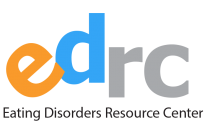Written by Amia Nash
Every year, the Eating Disorders Coalition brings advocates together for national Advocacy Day to educate Members of Congress and push for important policy goals. I had the opportunity to join on Capitol Hill (virtually this year!) and advocate for the Nutrition CARE Act, the Health Care at Home Act (H.R. 6644), and Tele-mental Health Improvement Act (S. 3792). New research shows COVID-19 significantly impacts persons affected, with increases in restriction for anorexia nervosa and binge eating for binge eating disorder and bulimia nervosa. Additionally, a new report shows eating disorders cost the U.S. economy $64.7B each year. $17B of that figure is the cost to the federal government.
With an estimated 149,000-199,000 seniors (~ 3-4% of seniors) and 18,000-37,000 persons with disabilities on Medicare with eating disorders in California, the Nutrition CARE Act will provide much needed coverage for Californians. Comprehensive eating disorders treatment includes 4 pillars of care: Therapy, Psychiatry, Medical and Medical Nutrition Therapy (MNT). Medicare does cover some eating disorders treatment, including inpatient, partial hospitalization (PHP), and outpatient (OP). However, at the outpatient level, Medicare only covers 3 out of the 4 pillars of care—excluding MNT for people with eating disorders. Medicare does cover MNT, but only if a person has diabetes or renal disease. The consequence of this lack of coverage is seniors and persons with disabilities have to pay out-of-pocket or forgo care and not fully recover. This leads to higher costs to the Medicare system from co-morbid physical conditions, costly higher levels of care and additional ER and hospital admissions. Economic impact report shows that in 1 year this totals $239M for ER visits and hospitalizations due to an untreated/acute ED; which we estimate is an additional $35.85M cost to Medicare. The Nutrition CARE Act allows Americans on Medicare to receive MNT services at the outpatient level for their eating disorders, just as they would be able to if they had diabetes or renal disease.
Additionally, since COVID-19, telehealth coverage has increased by 4,000%, with 1/3 being mental health visits. However, with the uncertainty of when the pandemic will end, there are inconsistencies and confusion about what mental health services are covered and how long non-federal health plans will continue telehealth coverage. This increases pre-existing stress and anxiety on Americans, particularly people affected by mental illnesses like eating disorders. We need safeguards during the pandemic to ensure everyone has the choice on what mode they can receive/provide their mental health care (in-person v. telehealth) so that we can continue eating disorder care and recovery. The Health Care at Home Act requires commercial and ACA plans to cover telehealth services as they would for in-person services during the pandemic.
As a San Francisco resident and constituent of Speaker Nancy Pelosi, I had the opportunity to speak with her congressional staff about my personal experience of eating disorders and mental health, and advocate for this legislation. Being able to speak at the Eating Disorder Coalition as an advocate, has been a long journey that started when I was in high school. Sports and running have always been a major part of my identity. Unfortunately, as a first-year in high school, I developed the mindset that the leaner I was, the faster I would be. Throughout my adolescence I had experiences of anorexia and bulimia. By my senior year, I was one of the fastest 400m runners in Washington state, however, the pressure I put on myself in school and sports contributed to my major depressive disorder and suicidal ideation throughout high school. No one knew that my biggest opponent wasn’t on the track, but in my own head. The biggest barrier to getting professional help and treatment was the stigma of having an eating disorder and other mental health problems. By the time I got to college, I was hospitalized several times for not fueling my body adequately. I was a Division I athlete at Santa Clara University, and fortunately, I had coaches and teammates who wanted to see me healthy and supported me to get professional help, which included nutrition counseling. Through my experience, I understand the importance of the Nutrition CARE Act and the Health Care at Home Act, and the importance of accessible treatment and getting help when you need it
I was once told, “Be the person that you needed when you were younger,” and it was in college that I began my advocacy for eating disorders. I pursued a public health major and wrote my senior thesis on eating disorders in athletes. I was an administrative assistant at the Eating Disorders Resource Center of Silicon Valley, connecting youth and adults in my community to resources and organizing educational workshops at schools and workplaces. My advocacy continued when I was a local titleholder in the Miss American Organization. As Miss Silicon Valley, my personal platform was mental health advocacy and I partnered with the National Alliance on Mental Illness. I spoke at high schools throughout the Silicon Valley talking to students about my story and offering educational resources for eating disorders and mental health. I continued my higher education at Stanford University School of Medicine, where I earned my Masters of Science in Community Health and Prevention Research, conducting qualitative research focused on the mental health needs and concerns of Asian-American adolescents and parents in Palo Alto.
I don’t think my 14-year old self would believe that my mental health struggles would motivate my education and career. Speaking virtually at Capitol Hill confirmed for me that our stories are worth sharing. As I continue my Doctorate in Public Health at UC Berkeley, I plan to be a leader in public health and write health policy that directly improves access to healthcare for underrepresented communities. I am forever appreciative of the continued support I have received from the EDRC in my advocacy work!






